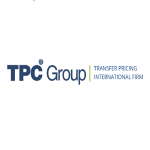Google Inc is a very particular case in transfer pricing (TP) matters. This global tycoon reduced its taxes by $3.1 billion from 2007 to 2010 by transferring most of its offshore profits through Ireland and the Netherlands to Bermuda.
Google’s strategy helped reduce its foreign tax rate to 2.4%, the lowest of the top five US technology companies by market capitalisation. It also shifted €34 billion in profits to the tax haven of Bermuda between 2015 and 2018, as the tax rate there is 0%.
The Dublin subsidiary, which employs nearly 2000 people and sells advertising throughout Europe, the Middle East, and Africa, has more than tripled its workforce since 2006, which is credited with nearly 90% of Google’s sales abroad, which amounted to $12.5 billion in 2008.
In the US, the corporate income tax rate is 35%; in the UK, Google’s second-largest market in revenue, it is 28%. Google, the owner of the world’s most popular search engine, uses a strategy that has gained acceptance among companies such as Facebook Inc. and Microsoft Corp.
The strategy uses several advantages, such as low Irish income tax (10% at that time, 12.5% currently) and the reduced withholding advantages of the European Community. Profits end up in a tax haven that does not levy any tax on corporations. The Bermuda offices are domiciled at the law firm offices of Conyers, Dill & Pearman at Clarendon House, located on Church Street in Hamilton, Bermuda.
According to information provided by IRS, Google’s effective global tax rate in 2016 was 19.3%, achieving this in part by transferring most of its international profit to the Bermuda-based entity. Google would have saved $3.7 billion through that transfer through this tax rate.
In previous years (2011), according to the newspaper ‘El Economista’ dated December 10 2012, Google avoided paying close to $2 billion in global income taxes by transferring more than $9 billion in profits to a company in Bermuda, almost double the total three years ago. The amount transferred to Bermuda is equivalent to 80% of Google’s total pre-tax profits for that year.
Google, the third-largest US technology company by market capitalisation, has not been accused of breaking tax laws. “Google’s practices are very similar to those of countless other global companies operating in a wide range of industries.”
Ireland went from being one of the first states to ask for a bailout during the Great Recession to posting a spectacular growth rate of more than 25% a few years later. Analysts agreed then that the figure was inflated, and most of the distortion was due to the huge influx of foreign investment attracted by the generous tax advantages the country offered to multinationals.
The island had already embraced lax tax policies decades earlier it became a favourite destination for large corporations. In the 1980s, it promoted the creation of a special economic zone in Dublin, followed by the implementation of schemes to lower the tax bill of multinationals and the reduction of the legal corporate rate to 12.5% -which is still one of the lowest in the region, where the average is 22%-. In addition, Irish legislation allowed, through internal TP policies, a greater outflow of taxable capital to tax havens such as Bermuda.
|
|
“Google’s practices are very similar to those of countless other global companies operating in a wide range of industries.” |
|
|
These measures led to an unprecedented economic boom, causing the country to be nicknamed the Celtic tiger in the 1990s, analogous to the expansion at the end of the 20th century of the so-called Asian tigers, such as South Korea and Singapore.
The starting point of this strategy was the transfer of rights and intellectual property (IP) rights to a company in Ireland for a reasonable price. Google transferred its search and advertising technology to Europe, the Middle East, and Africa from Google Holdings, Ireland. The arrangement was approved by the IRS under an advance pricing agreement (APA), overcoming the initial TP barrier by the search for IRS approval.
The system used consists of creating two companies, one based in European islands such as Ireland and the other in a tax haven as Bermuda. Thus, the profits obtained from IP that should be computed in other countries such as the US are first transferred to the Irish subsidiary and then redirected to havens such as Bermuda, as the Google’s case.
The technique required two companies in Ireland: Google Holdings- Ireland, with administrative management in Bermuda (tax resident there), that owns the licenses to Google’s IP rights. Google Ireland Ld sells worldwide advertising and collects advertising revenue, withholds a small percentage of the advertising revenue, and pays the balance in royalties to Google Holdings in the Netherlands. The copyright is tax-sheltered because Bermuda does not levy any corporate income tax.
Google’s Irish parent company is not under Alphabet Inc but of two companies located in Bermuda, of which 99% belongs to Google Bermuda Limited, while 1% belongs to Google Bermuda Unlimited Company. It was reported that Google channeled €19.9 billion to Bermuda in 2017, up €4 billion more than in 2016.
In 2019, according to information provided by Icex, Google carried out a $75.4 billion profit shifting from Ireland to Bermuda. The so-called ‘double Irish’ forms part of tax planning that takes advantage of the unharmonised situation between the US and Irish tax regulations. Ireland considers Google to be a multinational company tax resident in Bermuda (Google Bermuda Limited), and the US does Google Ireland Unlimited to be resident in Ireland, with its registered tax domicile.
Nevertheless, in 2020, Google stopped using the ‘double Irish’ system, by which it avoids taxes through Ireland, and decided to establish all its IP in the USA. This change is conditioned by the reform of tax legislation in Ireland and the US. For ten years, the American country had taken advantage of Ireland’s low taxation to concentrate the invoicing of its services in its subsidiary in this country and divert the profits to Bermuda, where no corporate income tax is paid.
In the Netherlands, Google uses a strategy known as a ‘conduit company’, acting before royalties are paid to Google Holdings. Irish companies are not required to withhold tax on royalties paid to companies in other European Community countries. To avoid the 20% withholding tax, Google Ireland Limited pays royalties to a Dutch subsidiary, which pays all copyright to Google Holdings, Ireland. In other words, a cycle of moves so that income generated in one country is managed from two others and taxed in a third, the latter with a lower tax rate.
The Dutch system is estimated to cost the rest of the world a minimum of 22 billion euros per year in evaded tax revenues with the ‘Dutch sandwich’, whereby money flows through mailbox companies with no physical offices, employees, or real activity, which are set up by multinational companies such as Google in the Netherlands. The companies decide to transfer their profits to the Netherlands, where they are taxed at a lower rate and once legalized, the profits are transferred to the Bermuda Islands.
In 2016, Google transferred $19.2 billion to a special corporation in the Bermuda Islands, according to the Dutch Chamber of Commerce, exceeding the previous year’s figure by 7%. A higher figure was calculated in 2018, around €24.5 billion from the Netherlands to the islands, exceeding 2017’s €19.9 billion.
From 2021, the Netherlands collected a withholding tax on interest and royalties to low tax countries, i.e. if corporate profits on intellectual property pass through the Netherlands to a recognised tax haven as the Bermuda Islands, then a tax must be paid in the Netherlands. This saves about 10% of international tax evasion that is done through that country.
The Netherlands is not alone in this tax loophole. There is the so-called ‘Dutch-Irish double sandwich’, whereby a multinational company such as Google establishes its headquarters in Ireland and then creates a subsidiary in a tax haven such as Bermuda, transferring the intellectual property rights to it. As the company would have to pay a tax to the Irish Treasury on the royalties it transfers to the tax haven, it establishes an intermediate subsidiary in the Netherlands, which does not impose this tax.
This case never went to court because several elements determined it could not be considered tax avoidance: The agreement with the IRS to give the license was the starting point. The change of location to Bermuda, the Dutch tax advantages, and finally, the tax deferral is the most used technique for American taxpayers. Google pays 35% income tax on its US source income but only 2.4% on its foreign scheme. If the Bermuda subsidiary distributes dividends, these would be taxed at 35% in the US.
The profits of the Bermuda subsidiary are included in the consolidated group of companies and public information due to its listing on the New York Stock Exchange. These profits are then reflected in the share price without the need for its effective distribution, thus avoiding the US tax on foreign dividends.
However, the context changed, as the corporate tax levied at 35% of profits in the American country was reduced to 21% during Donald Trump’s Administration for those companies that return their profits to the US.
On the other hand, in 2021, the countries comprising the G-7 reached a historic agreement, creating a global corporate income tax of 15% for large companies, a percentage that could increase to 20% for those companies whose profits exceed a minimum profit margin of 10%, as in the Google case.
In the same year, 136 countries agreed to a global minimum tax of 15%, effective from 2023, as well as a system for multinationals to pay where they operate, even if they are not physically present. The purpose is to prevent large multinationals such as Google from relocating their headquarters to another country where they have a much more favourable tax treatment, in addition to making them pay in the countries where they operate. The OECD, responsible for this major change, estimates that economies will collect an extra $150 billion in taxes per year.
Both pillars will support governments in collecting the revenues needed to repair their budgets and balance sheets while investing in essential public services, infrastructure, and the necessary measures to optimise the solidity and quality of project management in the recovery from the effects of COVID-19.
Among these countries is Ireland, which, by accepting the OECD agreement to raise its corporate income tax to 15%, ended the low-tax policy that enabled it to become one of Europe’s leading technology centres.
Click here to read all the chapters from ITR's TP Special Focus
Carlos Vargas Alencastre |
|
|---|---|

|
CEO TPC Group T: +1 305 793-0804 Carlos Vargas Alencastre is founder and CEO of TPC Group. He is an international TP consultant providing TP advice in countries such as Chile, Colombia, Mexico and Panama. Carlos has over 30 years’ experience in audit, taxes, management and consulting. He is a certified public accountant and an independent auditor with expertise in the application of double taxation agreements and the implementation of International Financial Reporting Standards (IFRS). Carlos is currently working on the convergence of TP practice in Brazil under the OECD guidelines. |












